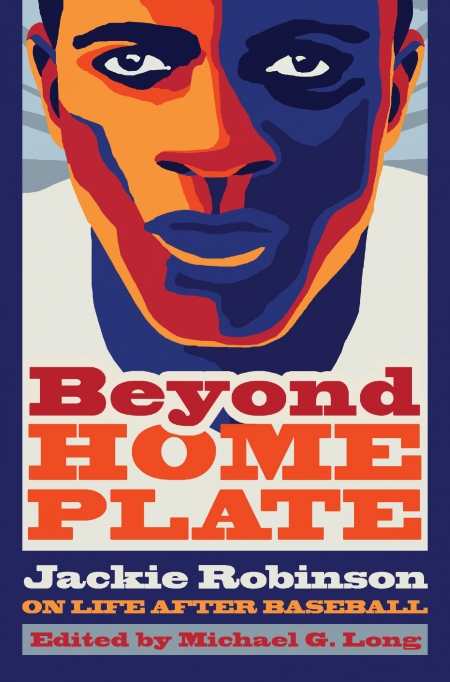Beyond Home Plate
Jackie Robinson on Life after Baseball
A powerful voice for integration and the oppressed, baseball and civil rights icon shows his humanitarian nature.
After Jackie Robinson ended his major league career with the Brooklyn Dodgers, he became a nationally syndicated columnist for the New York Post (1959-60) and then the influential African-American paper the New York Amsterdam News (1962-68). His column for the News, “Home Plate,” showed Robinson to be a relentless advocate of “first-class citizenship” for African Americans, who had historically been denied their constitutional rights. Robinson pulled no punches and took on all obstructionists with the same determination that helped him earn his place in the Baseball Hall of Fame.
These columns reveal Robinson as a fiery prophet who called former President Truman “pathetic and senile” for rebuking the 1960 sit-ins and challenged President Eisenhower to “stay away from his Jim Crow golf club in Augusta.” Robinson was a political independent, although he worked for Nelson Rockefeller’s 1964 presidential campaign and favored Richard Nixon over John Kennedy and Lyndon Johnson in 1960 because of Nixon’s civil rights advocacy while vice president.
Michael Long offers a well-chosen compilation that also shows Robinson’s humanitarian nature with columns that describe his admiration for Dodger owner Branch Rickey, Martin Luther King Jr., Robinson’s wife, Rachel, and, as he poignantly called them, “the three beautiful young Americans” who were murdered in Mississippi for helping blacks register to vote.
Long, an associate professor of religious studies and peace and conflict studies at Elizabethtown College (PA), previously edited I Must Resist: Bayard Rustin’s Life in Letters (2012) and Marshalling Justice: The Early Civil Rights Letters of Thurgood Marshall (2011). Here, the editor provides excellent commentary that precedes each column, which covers such topics as civil rights, golf (Robinson’s post-baseball go-to sport), friends and family, and politics and justice. Similar to other collections of this genre, this one is best read a few columns at a time to avoid coming across repetitive information in the same sitting.
Robinson was a powerful voice for integration and the oppressed, railing against Malcolm X and Black Muslim separatism, as well as white liberals who deserted the civil rights cause in the mid-1960s when they no longer controlled the movement’s agenda. This work serves as a useful reminder of this long admired “Boy of Summer” of the civil rights battles of the 1960s and the importance of black columnists, who provided thoughtful commentary and encouragement to the cause.
Reviewed by
Karl Helicher
Disclosure: This article is not an endorsement, but a review. The publisher of this book provided free copies of the book to have their book reviewed by a professional reviewer. No fee was paid by the publisher for this review. Foreword Reviews only recommends books that we love. Foreword Magazine, Inc. is disclosing this in accordance with the Federal Trade Commission’s 16 CFR, Part 255.

